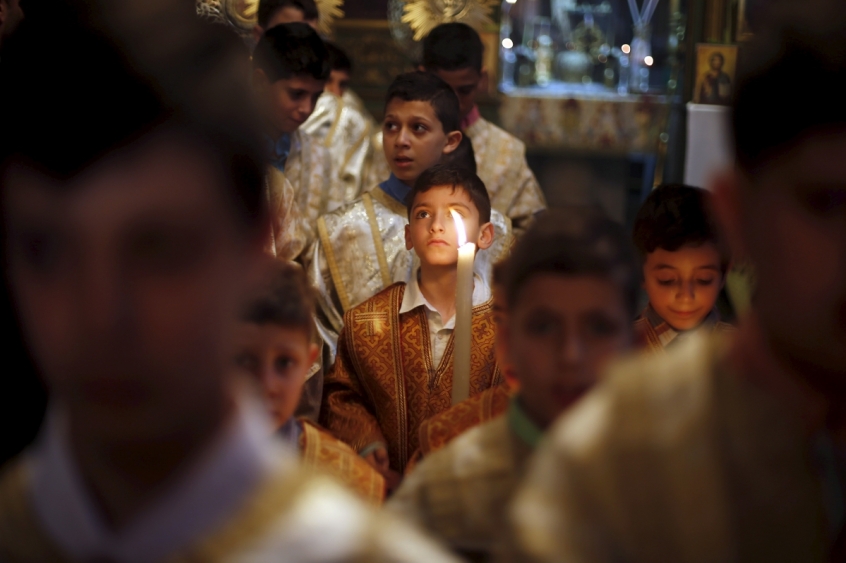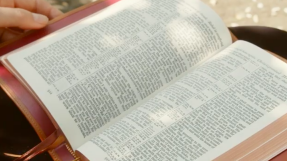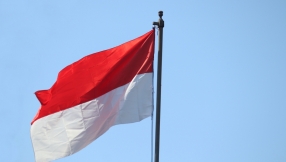
Every January I lead an international delegation of bishops to the Holy Land. Among the many inspiring people we meet and diverse places we travel to, I find there are normally one or two memories that stand out particularly strongly.
This year was no exception. An especially moving moment that has stayed with me ever since was meeting Leila, a Palestinian psychology student at Bethlehem University who described how her journey to class is disrupted by military checkpoints and her studies are interrupted by the sound of gunfire.
She told us 'no matter how many times I get caught up in clashes, no matter how many times I see the wall, no matter how many times I get through the checkpoint, this is not OK, this is not normal, this is not how we are supposed to live'.
Her words reminded me of a previous visit, when we travelled to the Israeli town of Sderot. About one mile from the border with Gaza, it has been targeted by thousands of rocket attacks, which have killed or injured dozens of civilians. Schools in Sderot are equipped with sirens in the classrooms and concrete shelters in the playgrounds – it is not how any child is supposed to live.
Back in 1917 the Balfour Declaration envisaged two communities coexisting peacefully, and respect for the inalienable human rights of all. The British Foreign Secretary supported 'a national home for the Jewish people' while stating that 'nothing shall be done which may prejudice the civil and religious rights of existing non-Jewish communities in Palestine'. One hundred years later it is clear that this vision has not yet been realised and a new generation is living with the consequences.
That is why, on this anniversary, we should not simply look back at Britain's own historical responsibility to the Holy Land. More importantly we should look forward to how, in light of that responsibility, we may help to ensure that the next generation of Israelis and Palestinians grow up in peace and dignity.
For people of faith our starting point is prayer. I hope that here in the UK faith communities will mark this historic moment not only by reflecting on the Holy Land's central place in our beliefs, but by praying for the future of everyone who calls it their home.
We also have a responsibility for raising awareness. To become agents of change it is important that we inform others, while continually deepening our own knowledge, and challenging our own assumptions.
In particular we should be listening to the voices of those living in Israel and Palestine. When we asked Leila for her message to people in the UK she simply replied: 'Come here, see and hear the reality, coming here changes your perspective.'
Another way we can play our part is by letting our elected representatives know that the future of Israel and Palestine is something that matters to us. In particular this is an important moment to call on the UK government to formally recognise the State of Palestine, as the majority of countries and the Holy See have already done.
True reconciliation is dependent upon justice for all peoples of the Holy Land. During his visit Pope Francis renewed the appeal of Pope Benedict XVI: 'The right of the State of Israel to exist and to flourish in peace and security within internationally recognized borders must be universally recognized. At the same time, there must also be a recognition of the right of the Palestinian people to a sovereign homeland and their right to live with dignity and with freedom of movement. The Two State Solution must become reality and not remain merely a dream.'
Finally there are practical actions that we can all take. Our decisions as consumers and travellers are important. Using ethical tour operators, buying products that support local families and making informed choices about where goods come from are all simple steps that have a real impact.
We also need to get behind projects that are building bridges between ordinary people in the Holy Land. Another one of my strongest memories from this year was visiting the Tent of Nations, a family-owned farm not far from Bethlehem, which hosts camps and volunteering opportunities for people of different backgrounds to learn, share and better understand one another.
Their motto is simple: 'We refuse to be enemies'. On this anniversary we are called to share in that rejection of division, conflict and hate. And after one hundred years of failure, we must recommit to prayer, awareness and action until the shared vision of communities coexisting, in peace and with justice, is finally a reality.
Bishop Declan Lang is the Catholic Bishop of Clifton.













